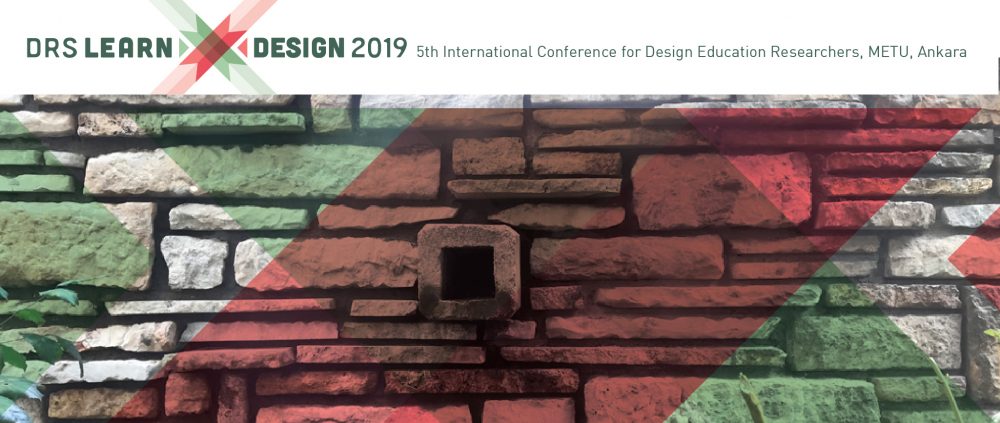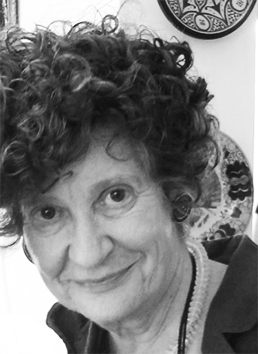GABRIELA GOLDSCHMIDT
10 July 2019, Wednesday 13:30-14:30, METU Cultural and Convention Center, Kemal Kurdaş Hall
Disciplinary Knowledge and the Design Space
When faced with a design assignment, designers –novice and experienced alike– conduct a search in a design space that comprises different types of knowledge that is relevant to the assignment. For experienced and certainly expert designers, this knowledge can be divided into three categories: general, cognitive, and disciplinary (professional). Novice designers often have similar general knowledge, they have cognitive knowledge, but they lack disciplinary knowledge, which is acquired with experience and with guidance, mostly as part of a professional education. Disciplinary [professional] knowledge is embedded in a disciplinary world into which the novice designer must be initiated. Disciplinary knowledge, both declarative and procedural, affects the way cognitive knowledge is implemented. The disciplinary world one is a ‘member’ of, shapes the design spaces one constructs. In this talk we look at examples of design solutions generated by novices (children) and by professionals in different design disciplines, to see how they incorporate (or do not incorporate) disciplinary knowledge into their solutions. We then briefly touch on the learning processes that enable novices to benefit from input by their elders and develop independent design thinking skills and knowledge.
About Gabriela Goldschmidt
Gabriela Goldschmidt is a graduate of the School of Architecture at Yale University. She worked as a practicing architect in the USA and Israel and had her own practice in Haifa until the mid-1980s, at which time she joined the Technion in a full-time capacity. Since the end of 2010 she is a professor emeritus. She taught a large number of design studios and theoretical seminars that reflect her research areas: design cognition, visual thinking and sketching, analogy, and design education. She served as a visiting professor or visiting scholar at MIT, Stanford, TUDelft, the University of Montreal, UNIST, and Bezalel Academy of Art and Design. Her publications include dozens of refereed journal papers, book chapters, papers in conference proceedings, and two books: an edited volume (with Prof. William Porter of MIT), Design representation (Springer 2004), and Linkography: Unfolding the design process (MIT Press 2014). She continues to lecture around the world and supervise PhD students at the Technion.
ZEYNEP ÇELİK ALEXANDER
11 July 2019, Thursday 13:30-14:30, METU Cultural and Convention Center, Kemal Kurdaş Hall
Drawing Circles
What kind of knowledge is produced at a design school? This talk inquires into the late-nineteenth century German context out of which schools such as the Bauhaus emerged in an attempt to make sense of the epistemological ideals still pursued in design schools today. The Bauhaus here appears less as the beginning of a modernity and more as the last manifestation of an epistemological project that was marked by faith in non-propositional and non-linguistic knowledge. Even though this project lost its credibility in the early twentieth century its techniques survived. Discussing these techniques as they were forged at the Bauhaus, this talk poses questions regarding the epistemological history of modern design education.
About Zeynep Çelik Alexander
Zeynep Çelik Alexander’s work focuses on the history and theory of architecture since the Enlightenment. After being trained as an architect at Istanbul Technical University and Harvard Graduate School of Design, she received her Ph.D. from the History, Theory, and Criticism Program at M.I.T. Çelik Alexander is the author of Kinaesthetic Knowing: Aesthetics, Epistemology, Modern Design (Chicago and London: University of Chicago Press, 2017), recipient of the Charles Rufus Morey Award from College Art Association. The book is a history of an alternative mode of knowing—non-propositional, non-linguistic, and based on the movements of the body—that gained saliency in the nineteenth century and informed the epistemological logic of modernism in the German-speaking world. A second volume, Design Technics: Archaeologies of Architectural Practice, co-edited with John J. May (Harvard University) and forthcoming from the University of Minnesota Press in 2019, examines the histories of a series of techniques that have come to dominate contemporary design disciplines. Çelik Alexander has published in numerous venues, including Journal of the Society of Architectural Historians, New German Critique, Harvard Design Magazine, Log, e-flux, Grey Room, Journal of Design History, and Centropa. She is currently at work on new book that explores nineteenth-century architectures of bureaucracy from the Kew Herbarium to the Larkin Administration Building. Çelik Alexander is a member of the Aggregate Architectural History Collaborative and an editor of the MIT Press journal Grey Room.
HALİME DEMİRKAN
12 July 2019, Friday 13:30-14:30, METU Cultural and Convention Center, Kemal Kurdaş Hall
Learning and Knowledge Building Skills in Design Education
Learning as an interactive process is an important issue in design education. An individual’s preferred method for receiving information in any learning environment is the learning style of that individual. Learning style is the most widely used concept in Experiential Learning Theory (ELT). ELT considers learning as a cycle that begins with experience, continues with reflection and later leads to action that becomes a concrete experience for reflection. In the design process, information processing and decision making is very intensive in the conceptual design phase, as a consequence of generating and evaluating alternative ideas. An epistemological and methodological approach guides the designer to capture, describe, prioritize, act and evaluate alternative design solutions. Therefore, it is important that methods and knowledge are linked in designers’ cognitive strategies. With the emergence of digital technology, the design studio has changed from a studio-based learning environment to a technology enhanced active learning space. Educator’s role in the application of the ELT concepts of the learning style should match with the dynamic model of teaching around the learning cycle. Considering the learning and knowledge-building skills of students in design education, the educator should not only be a conveyor of knowledge but also a facilitator, encouraging students to develop their academic and artistic skills.
About Halime Demirkan
Halime Demirkan is a Professor of Architecture at the Faculty of Art, Design and Architecture, Bilkent University, Ankara. She currently is the Director of the Graduate School of Economics and Social Sciences. She holds bachelor’s and master’s degrees in industrial engineering and a doctoral degree in architecture from Middle East Technical University. Her previous professional experience has included appointments as research assistant and instructor in the departments of Industrial Engineering and Industrial Design, Middle East Technical University; and as a researcher at the Building Research Institute, Scientific and Technological Research Council of Turkey. Her publications include articles in various refereed journals, book chapters and papers in conference proceedings. Her current research and teaching include creativity in architectural design process, design education, and design for an aging population.



